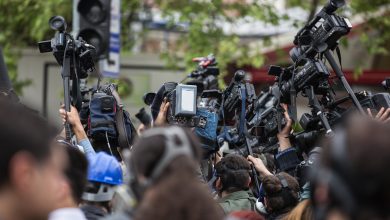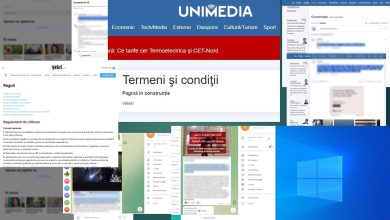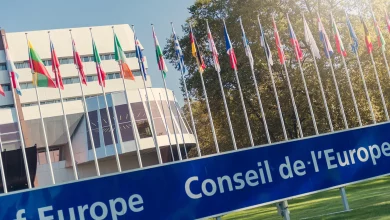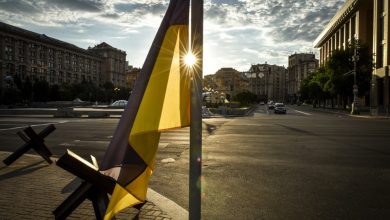2023 Press Freedom Index. Numerical Leap for Moldova and Similar Problems: Media Polarization and Political Control

The Republic of Moldova ranks 28th in the 2023 World Press Freedom Index published by Reporters Without Borders (RSF). Our country has climbed 12 steps in the ranking, and the media situation is classified by experts as satisfactory as compared to the previous year. In spite of the numerical leap, RSF reports the same problems as before. Meanwhile, Romania climbed three steps, ranking 53rd, and Ukraine climbed 27 steps, ranking 79th. According to the research, this year, journalism is being particularly threatened by the fake content industry.
As to the Republic of Moldova, in addition to such persistent issues as polarization and political control in the media space which were also mentioned last year, when Moldova ranked 40th, RSF emphasizes the influence of Ilan Șor in the media sphere, describing him as “a pro-Kremlin oligarch who exiled himself in order to escape prosecution on corruption charges.” However, in December 2022, the licenses of the six pro-Russian TV channels were suspended, the report remarks.
From the political point of view, the authors emphasize that the state of emergency ordered by the authorities as a response to the Russian Federation’s aggression in Ukraine, the neighboring country, as well as the steps taken by the Broadcasting Council “toughened the control over disinformation and hate speech and undermined the media outlets broadcasting the propagandistic content produced in Russia.” However, access to information is often endangered, and arbitrary defamation lawsuits are widespread. From the point of view of economy, the Index mentions unfair competition on the advertising market and financial issues faced by the country’s independent media outlets which are forced to turn to the foreign donors’ funds.
“To a certain extent, this 12-step leap is due to the evolution recorded in the segment of freedom of the press last year; this progress is also registered in our internal reports. At the same time, we cannot ignore the so-called ‘mechanical growth’ taking place when some countries with similar ranking climb to the top, and, respectively, those next to them reach better positions automatically. As to the improvements, it should be remarked that security or socio-cultural factors are typically rather favorable for the media activity in our country; in fact, in the Republic of Moldova, we have no cases of assassination or physical attacks on journalists, and minority or religious groups can create and share their content without restrictions. The political context was also more favorable last year. The legislative framework has been somewhat improved and brought into line with the European standards, and the current composition of the Broadcasting Council has done a better job than their predecessors. From the economic perspective, we still have an increase, even though the perception among the journalists themselves is different,” Nadine Gogu, Executive Director of the Independent Journalism Center (IJC) explains.
“The explanation is in the fact that the assessment includes not only the financial problems generated by reducing advertising budgets and increasing production costs, but also such other aspects as ensuring media ownership transparency, owners’ interference in editorial policies, influence of economic factors, equal access of the written press to print media, etc. It should be mentioned that the RSF Press Freedom Index assesses the situation from the point of view of political, economic, and socio-cultural contexts and security conditions, and data collection is quite technical here. Answers (affirmative or negative ones) to a series of specific and technical questions are typically recorded to illustrate the situation in different segments of press freedom,” CJI Director also notes.
EUROPE: CENSORSHIP IN THE EAST VS. A SUBTLE BALANCE BETWEEN FREEDOM AND SECURITY IN THE WEST
The authors of the report emphasize that press freedom in Europe is marked by the war in Ukraine in a defining way. The experts use the concept of “systemic censorship” as a generic term for the process of “purging” applied to the Russian media, especially after the war broke out, as well as the propaganda spread by the pro-government media institutions trying to fill the void following the massive exodus of independent Russian and foreign newsrooms. The Kremlin propaganda machine rages in the newly occupied regions of Ukraine, while in the free areas, journalists enjoy more independence. Yet the war and the spirit of national unity have contributed to reducing the media oligarchs’ control in Ukraine (ranked 79th), according to the report. The invasion of Russia (164th) overshadows the entire region, with such examples as Belarus (157th) and Kyrgyzstan losing 50 steps (122th).
On the other hand, a number of Western countries restricted journalistic activity for “national security” reasons. In Greece (107th), for instance, the intelligence services’ spying on journalists was the worst violation of press freedom in the European Union in 2022, according to the experts. This fact explains why Greece has the lowest rating among all the EU states in the 2023 index. In the UK (26th), Julian Assange is still imprisoned waiting for extradition, and investigative journalism is threatened by a bill on national security which does not have sufficient provisions on protecting journalists. However, the RSF report remarks, twice as many EU member states have improved their Press Freedom Index ratings compared to those that have lost their top positions.
EFFECTS OF THE FAKE INDUSTRY
The World Press Freedom Index assesses the state of the press in 180 countries and territories and is published on the World Press Freedom Day celebrated annually on May 3. According to this year’s results, the situation is “very serious” in 31 countries, “difficult” in 42, “problematic” in 55, and “good” or “satisfactory” in 52 countries. In other words, media conditions are “difficult” in seven out of ten countries, and satisfactory in three out of ten.
This year’s Freedom of the Press Index demonstrates that, in 118 countries (two thirds of the 180 countries assessed), most survey respondents reported that “political actors in their countries were often or systematically involved in massive disinformation or propaganda campaigns,” which, according to the authors, substantially blurs the difference between true and false information. The negative impact of artificial intelligence tools on the media is equally mentioned.
RSF mentions that America no longer has any country colored green on the press freedom map (green denotes a good press situation). Costa Rica (down 15 at 23rd) was the last country in the region to have a situation classified as “good”. Mexico (128th) has fallen another place this year and now has the world’s most disappeared journalists (28 in the past 20 years). In Cuba (172nd), according to the report, censorship has intensified again, and “the press is still a state monopoly,” hence, the country has the lowest index in the region, the same as last year.
On the other hand, Norway tops the Press Freedom Index for the seventh year running, followed by Ireland and Denmark. At the opposite pole, the last three places are held by the Asian countries: Vietnam (178th), “which has almost completed its hunt of independent reporters and commentators,” China (179th), “the world’s biggest jailer of journalists and one of the biggest exporters of propaganda content,” according to the report, and North Korea which holds the last position.




